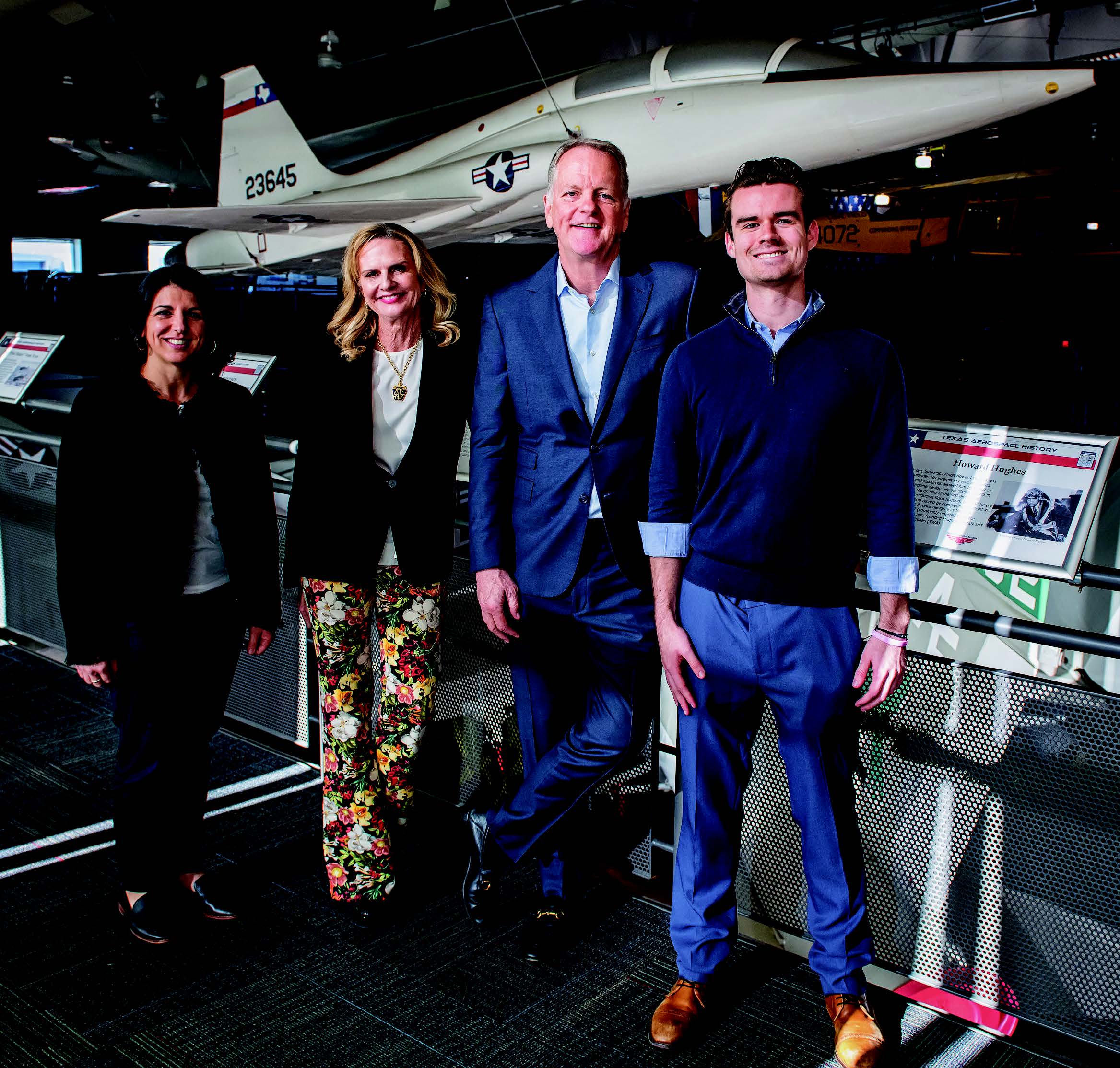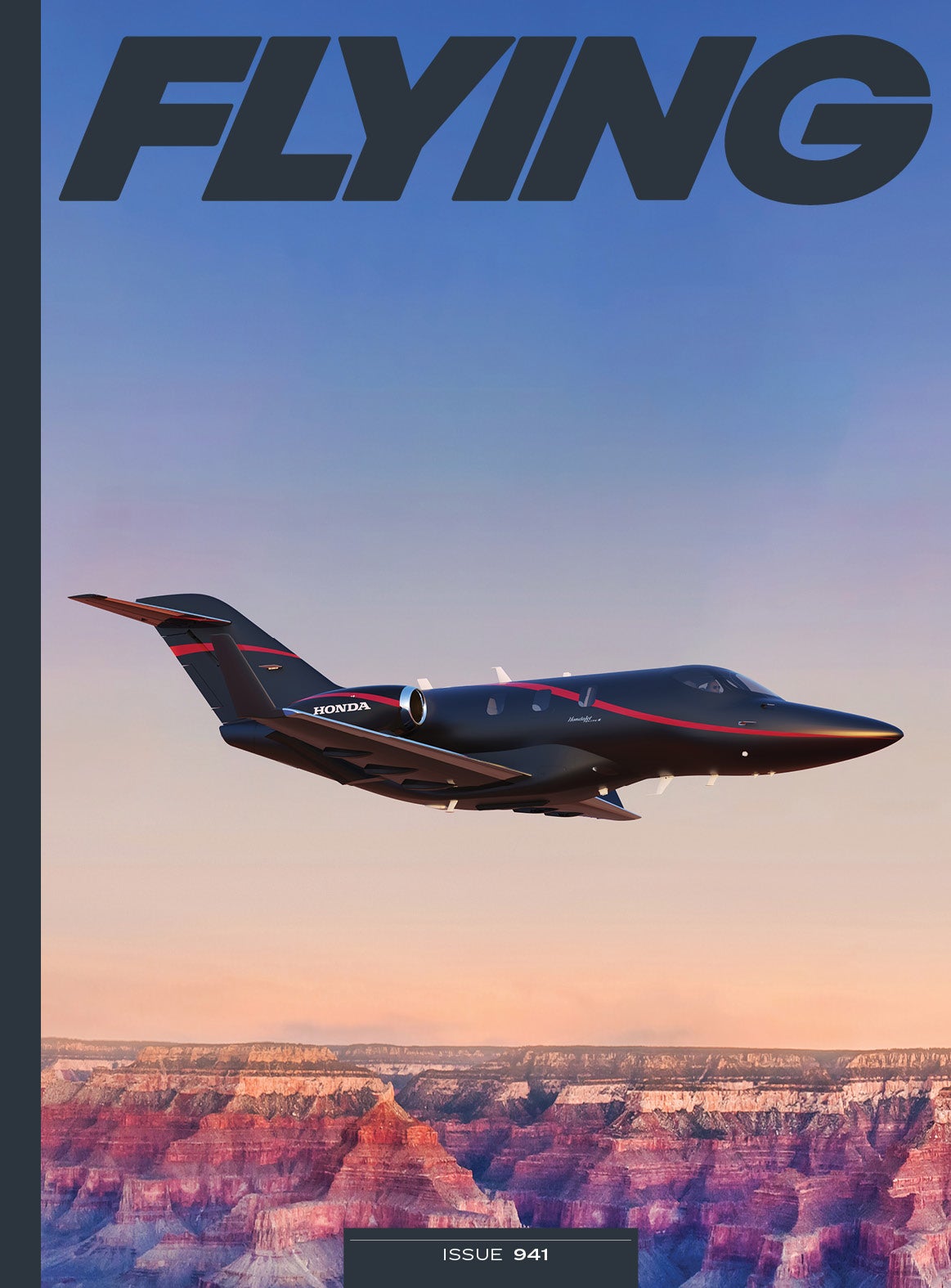Former American Airlines CEO Doug Parker is making headlines again, but this time he’s not explaining quarterly earnings reports on CNBC. Instead, the decorated airline executive is looking to attract the next generation of aviation professionals with a new charity. As the pilot shortage cloud continues to loom over the commercial aviation sector, Parker is particularly focusing his charity’s work on garnering interest from a diverse pool of next-generation professional aviators.
Called Breaking Down Barriers, the newly minted nonprofit will be helmed by Parker, his wife Gwen—a former American flight attendant—and Dana Donati, who recently led United Airlines’ Aviate Academy near Phoenix. At its core, they say the new charity’s goal is to foster interest, mentorship, and career development for individuals otherwise underrepresented in the aviation sector.
If you’re not already a subscriber, what are you waiting for? Subscribe today to get the issue as soon as it is released in either Print or Digital formats.
“At least from my perspective, the two biggest barriers were one, this financial requirement, and the other is awareness, just because of the history in the industry,” Parker said during an interview with FLYING at the Frontiers of Flight Museum in Dallas in December. “I just think there are a lot of
people out there that have the full ability to do this but don’t know it exists. But those people exist in underrepresented communities as well. So what we really want is just to go find those people who have the same skills that the airlines are looking for…and identify them ourselves.”
From CEO to Founder
As the former CEO of three airlines, which eventually all became one, Parker’s industry reputation precedes him. On September 1, 2001—10 days before the 9/11 attacks— he began his tenure as an airline chief at Phoenix-based America West Airlines. He would later go on to orchestrate the airline’s 2005 merger with US Airways.
In 2013, Parker ended up forming the world’s largest airline when he led the merger of American and US Airways. Today, American operates a fleet of more than 900 mainline aircraft to nearly 350 global destinations. Parker later retired from his post as chairman and CEO of the American Airlines Group in 2021 after negotiating blockbuster federal government-backed support packages for U.S. airlines in the wake of the 2020 COVID-19 pandemic.
- READ MORE: American Scales Back Pilot Hiring Plans
Before taking the helm at these carriers, Parker worked at a handful of other airlines as well, including Northwest and the pre-merger American. Part of the so-called American “brat pack” that shaped several current U.S. airline CEOs, Parker worked under notable industry titans, including former American president and chairman Bob Crandall.
With the creation of Breaking Down Barriers (BDB), Parker is shifting from a well-known CEO to that of a founder. The CEO title at Breaking Down Barriers belongs to Donati, who also has an impressive résumé with decades-long experience as a professional pilot and chief pilot at a major regional airline. Aviate maintains a similar mission to BDB in its quest to usher in the next generation of professional aviators from diverse backgrounds.
“So, we’re providing the scholarships to do the training, but it’s also about the coaching and the mentoring,” Donati said during the Dallas interview. “I currently have my CFI, so I’ll be on these students, making sure that they’re studying.”
A Continuing Shortage
Although the U.S. is producing pilots with airline transport pilot (ATP) certificates at a record rate, a shortage of those heading for the airlines continues, largely because of clogs in the training pipeline and post-COVID woes. Some experts—including Oliver Wyman, a consultancy firm that works with several air carriers—expect the global aviation sector to run short by nearly 80,000 pilots by 2032.
Parker opined on the continued pilot shortage.
- READ MORE: Pilot Shortage ‘Isn’t Real,’ ALPA Says
“I think, for all these members of Congress that are upset about how they don’t have small community service, we don’t have pilots,” said Parker. “They ought to be beating on the FAA to go get some more DPEs [designated pilot examiners] in place. It is my understanding anyway [that] it is creating a real backlog to the airline’s abilities to get pilots that are qualified and ready, actually certified, because they’re just waiting for someone to give them the test or to prove that they can do it.
“It’s a huge backlog in the pipeline. But, anyway, that’s my old job.”
In 2023, U.S. airlines are on track to report record-setting hiring trends, according to data from Future & Active Pilot Advisors (FAPA), a pilot career consulting group. Alongside this continuation of hiring, major U.S. airlines American, Delta, and United also signed new collective bargaining agreements (CBAs) with their respective pilot groups, some worth up to $10 billion.
At these major airlines, pilots can earn upward of $450 per hour at the top of the pay scale, making a career increasingly compelling. Parker and his team say they want to provide access to these high-value careers for those who may not otherwise know it is an option.
While Parker acknowledges that Breaking Down Barriers isn’t in the business of fixing the pilot shortage, he does recognize the ongoing demand.
“We just know because that demand exists,” Parker said. “It’s a real opportunity to make sure that we don’t miss this opportunity to open it up to the best of the best. [For] those that have barriers in front of them, we want to help pull those barriers down so they can succeed to their full potential.”
Opening the Door
A career as an airline pilot has become gradually more attainable in recent years, partly because of strong demand but also thanks to new programs that make the pathway to an airliner’s flight deck more efficient. Many airlines have introduced cadet academies to take interested individuals all the way from a private pilot certificate to a Boeing 737 type rating, for example.
But even with these programs in place, the cost of training can hinder the process significantly, particularly for those in underrepresented communities. Parker and his team hope that Breaking Down Barriers will not only fund the training component but also garner early interest.
“Taking someone who doesn’t even know that these opportunities exist in aviation, and getting to be an airline pilot is so transformational that it seems like that’s the best place to start where you can make the biggest [and] the largest impact,” said Parker regarding his charity’s approach to taking in individuals that may not otherwise have any sort of aviation-related background.
Parker believes that targeting these underrepresented individuals early will not only help them but also their communities.
“They don’t know, because of the communities in which they live,” he said. “In some cases, they don’t see people that look like them that do this. So, if we do this right, we’ve identified those that have the ability to do it, the potential desire to do it. But also, once they do it, [they can] go back into those communities as examples.”
In the U.S., 93.7 percent of professional aviators are white, and 92.5 percent are men as of 2020, according to Bureau of Labor Statistics data. The BDB group says it is looking at a solution to bringing in the next generation of pilots from a longer-term lens.
“Generational change, that’s what we’re hoping [for],” Gwen Parker said.
Currently, the charity’s initial primary focus area is in Dallas, where they say that meetings have already taken place with a handful of local schools. Pilots are also the primary profession, but the trio did not rule out other industry career paths.
Doug Parker is already looking toward the future of what’s next for Breaking Down Barriers.
“I suspect we’ll start moving into other communities,” he said. “And we’ll start moving into other professions as well. I just think there’s this huge upside here. And the amount of excitement that we get when we talk about this is really kind of hard to believe.”
This feature first appeared in the January-February 2024/Issue 945 of FLYING’s print edition.

